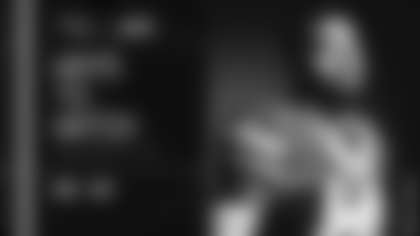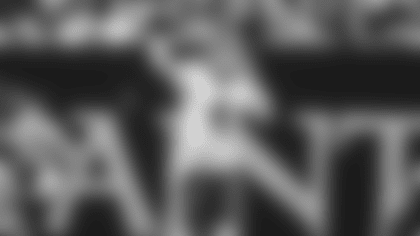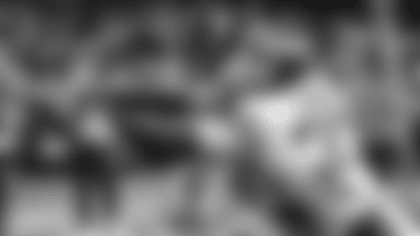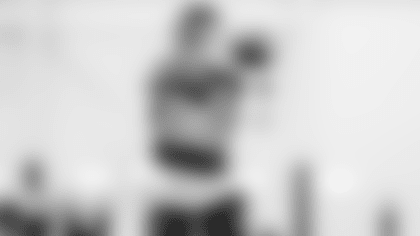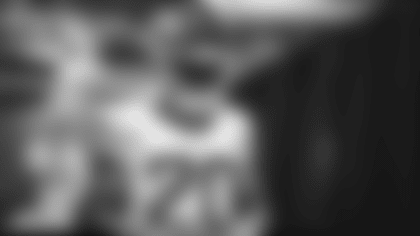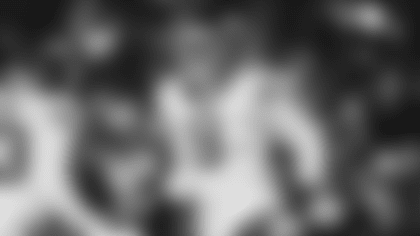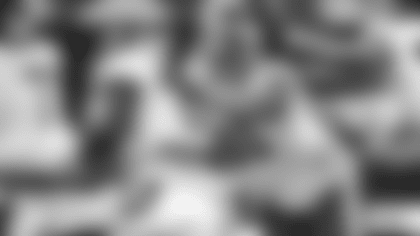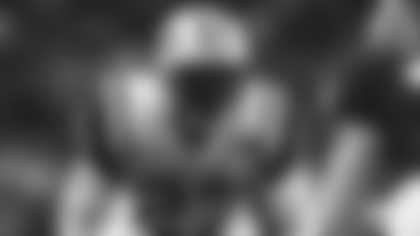
Few knew that the Jets wanted to choose North Carolina State cornerback Tony Scott during the 2000 NFL Draft. Including Scott.
"I was really shocked, because during the whole process everybody else was talking to me. But the Jets never really said anything," Scott said. "And so when I heard from them, I was like, 'Wow!' And then when I looked at their roster, I was like, 'Really wow!'
"They had a whole lot of great veterans. Aaron Glenn, Marcus Coleman, and they had Otis Smith there, who went on to New England. They had Ray Mickens. I was like, 'Oh, my goodness. They don't need me.'"
The Jets didn't see it that way and decided to pick Scott, who had collected four interceptions during his senior season at NC State, in the sixth round.
"They liked my size. And they saw that I was a starter, but they were looking at my special teams play," Scott said. "So when I finally got in there and not knowing the politics of things, they sat me down and told me that those four guys were pretty much fighting for three spots.
"Coming out of college, I didn't understand salary caps and all that kind of stuff. And so after they explained it to me, I was like, 'Oh, okay.'"
The rookie was also fortunate to have veteran cornerback Aaron Glenn there to explain some things, too.
"A.G., he taught me how to be a professional," Scott said. "He taught me how to go about my business and making sure that you look good on tape. Because if you don't look good on tape, people are going to try you. They're not going to take you seriously. So I used to watch him and his footwork and all that kind of stuff. A.G. was definitely my mentor."
After playing well during training camp and the preseason, Scott learned that Glenn would be his mentor as well as his teammate when he beat the odds to make the team.
"That it was a big relief. You know, you go into something and everybody at home is saying it's just as easy as getting off the couch. 'Hey, go play for this team,'" Scott laughed. "They don't understand the grind and what it takes. And that slogan, 'You can't make the club in the tub' was definitely a big thing back then.
"I've been out of the league a while, so I don't know how it works now, but back then, that was the thing. You were more valuable being able to stay healthy. That's one of the things that A.G. taught me, how to make sure I take care of my body. You can't just run out (after practices and workouts), you've got to get in the hot tub. You've got to get those massages; you've got to do this type of stuff. But when I found out I made the team, man, it was tears of joy."
Contributing mainly on special teams during the first 11 games, New York's GM Bill Parcells sought Scott out when Week 12 rolled around and the Jets were preparing to face the division-rival Dolphins in Miami.
"We were in a dog fight," Scott said. "And Bill had come to me and kind of gave me a little pep talk. 'Hey, it's time. We need you this week. We need some big plays out of you.' I just wanted to go out there and play my best."
Scott, Chris Hayes, and Shaun Ellis each played their best and gathered the first interceptions of their career in the game. Scott's pick came midway through the fourth quarter when Glenn tipped a Brock Huard pass which Scott caught at the Miami 27. Three plays later, Bernie Parmalee scored on an 18-yard run, and the Jets beat the Dolphins, 20-3, for one of their nine wins that season.
Nine proved to not be enough, and the Jets experienced changes the following year when they replaced their head coach Al Groh with Herm Edwards.
"I was pretty down because I had worked so hard under Coach Groh. And the people that were there were the ones who drafted you," Scott said. "Coach Herm was a good coach, but I was kind of bummed because I knew what the organization and the coaches there had said to me. 'When you come back in, you know what you're going to be fighting for.'
"And then all of a sudden, they're gone and now you've got new coaches and you've got to re-prove yourself all over again. And, of course, they like certain type of players. And so it's just one of those things. You've just got to adapt and keep going."
Unfortunately, injuries didn't allow Scott to go much longer with the Jets. Only able to play in seven games in 2001, that would be his final season with them. He would then go on to spend time with New England and Seattle over the next two years before playing for various teams in the Arena League.
While playing two years for the Green & White wasn't as long as he would have liked, Scott has fond memories of that time in his life.
"Just being there and knowing that you've made it to the highest that you can in your profession, I was lucky enough to be on a team where a lot of the guys already there were vested. Mo Lewis and Marvin Jones, Ray (Lucas) and A.G. and Marcus (Coleman) and all those guys, they were able to teach me a lot. It was not like a whole bunch of young guys just trying to fight it out," Scott said.
"I think we had a tight group. Everybody got along well and pushed each other. And my draft class, John Abraham and 'Big Cat' [Shaun Ellis] and Laveranues (Coles) and Windrell (Hayes), (Anthony) Becht, Chad (Pennington), all of us were pretty close.
"Being able to reach the NFL, that was one of my biggest goals. Being able to see that I can compete with the elite. And now as I'm older, I'm able to share those memories and be an inspiration to my kids. Definitely, my two boys who play the sport. I know they can look at their dad and say, 'Hey, if Dad can do it, I can do it.' And not only that, I can show them how to get there. That's really special to me."
The father of five: Gerraille, Lerraille, Tony, Jr., Jade, and Charles; and also a grandfather, Scott now makes his home in Raleigh, NC, where he is a mental health counselor.
"It's really meaningful for me because I didn't understand my mom when I was growing up and she was having mental health issues. I didn't understand what she was going through," Scott said. "As I went to NC State and was taking psychology and sociology classes, it started to dawn on me how she was feeling. And that just made me fall in love with mental health and wanting to help and understand how real mental health was and is.
"I think that's my second calling, just seeing people come in and feel like their life is destroyed, being able to help them out is something that is self-rewarding for me."
And when he sees that he's making a difference in someone's life…
"It's awesome," Scott said. "Just seeing when they come in, how broken they are, and how their lives is just a shell, and when they leave the hospital, they're leaving with a smile. They have a new walk. They have a piece of peace at the moment, and they can believe that they can do it again. And that's the reward that you get out of mental health, when you know you helped someone."




